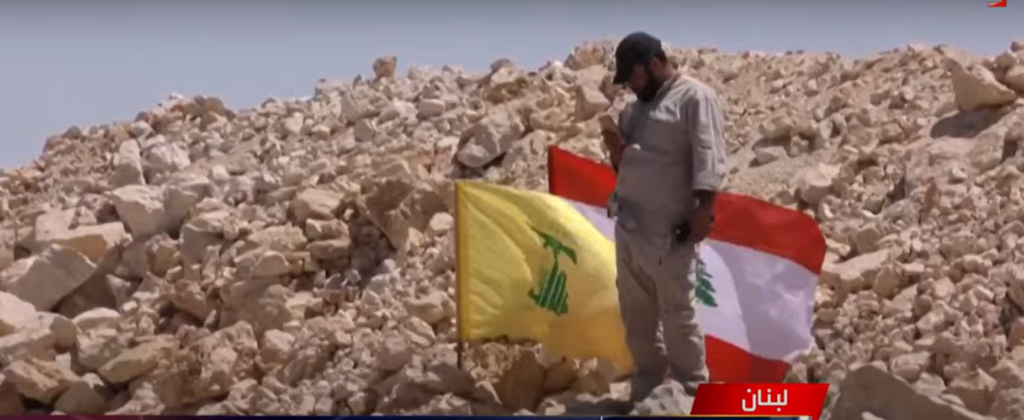The tensions on the northern border following the attack at the Megiddo junction continue, Lebanese officials estimate that the Israeli response to the attack will arrive soon and that it is only a matter of time because Israel cannot pass by in silence over such an attack and will try to restore its deterrence against Hezbollah.
Israel has not officially assigned responsibility for the attack to the Hezbollah organization, but according to senior security officials, Hezbollah’s Unit 133 is involved in the attack, possibly together with Hamas operatives from southern Lebanon.
Unit 133 is Hezbollah’s secret unit responsible for terrorist attacks in Israeli territory and recruiting Palestinian agents.
According to sources in Lebanon, the Israeli response to the attack at the Megiddo Junction will be after the legislative process in the Knesset is completed next week regarding the composition of the committee for the appointment of judges and after the wave of demonstrations in Israel ends next week, which should be very powerful.
In Israel, the results of the investigation into the attack at the Megiddo Junction are still being kept a secret. This also has operational implications that cannot be elaborated on, but it is clear that Hassan Nasrallah has changed the rules of the game that have been used until now between Israel and Hezbollah out of an assessment that Israel is internally weak and limited in its reactions, and he is trying to force Israel to contain the attack and not respond.
Hassan Nasrallah is again examining Israel’s red lines as he did when he ordered the launch of 4 drones towards the “Karish” gas rig last year.
through the attack, he sent a message to Israel that Hezbollah stands by the Palestinian terrorist organizations in their fight against Israel.
He is smug and self-confident, he showed great arrogance and in his speech he sent Defense Minister Yoav Galant to tile the sea.
Sources in Lebanon estimate that Israel will have to respond to the attack in order to try and restore its deterrence against Hezbollah despite Hassan Nasrallah’s clear threat that he will respond quickly and decisively to any Israeli attack on the Lebanese, Palestinians or any other citizen in Lebanon.
There are also questions that arise from the attack at the Megiddo junction.
Why was the terrorist sent to plant the large explosive device at the Megiddo junction?
Did he receive assistance from sleepers of Hezbollah or Hamas inside Israel?
Is Hezbollah trying to heat up the region in order to drag Israel into war on several fronts?
The Israeli response
Senior security officials say that Israel will have to respond to the attack as soon as possible in order to strengthen deterrence and return Hezbollah to the previous rules of the game, Israel must show Hezbollah and the other terrorist elements in the region that despite the wave of protests in Israel it is still very strong and is not on the way to disintegration.
Failure to respond to the attack will only encourage Hezbollah to carry out more attacks.
The final decision on the nature of the response rests with the political echelon, the security establishment is examining ways of a high-quality response that will not drag Israel into an all-out war with Hezbollah, but it is certainly possible that the Israeli response will lead to several days of fighting on the northern border.
There are several options for an Israeli military response, one through the IDF and the Air Force and the other a covert response, without Israel’s fingerprints through the Israeli Mossad that will operate in Lebanon, Syria or abroad against Hezbollah or Hamas targets as it did last week in Damascus in killing Ali Ramzi Alaswad , the senior military wing of the Islamic Jihad.
Israel has several options, for example:
- Attack on Hezbollah headquarters in the neighborhood of A-Dahiya in Beirut and other places in Lebanon.
- Attacking the sites where Hezbollah manufactures precision missiles in Lebanon.
- Attacking Hezbollah targets in Syria.
- The assassination of Hezbollah leader Hassan Nasrallah or senior officials of his organization in Iran, Syria, Lebanon or abroad.
There are also other options that cannot be detailed, but a senior security source says that if the political echelon decides on a response, then it must be in the near future and also a response on an important and high-quality target in order to convey the message to Hezbollah.
Israel will have to prepare for an escalation and make it clear to the Lebanese government that it is the sovereign in Lebanon and that any attack from its territory on Israel will result in a strong IDF response to Lebanon’s civilian infrastructure as well.




